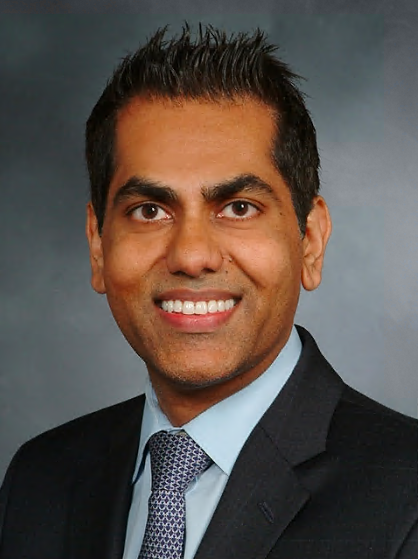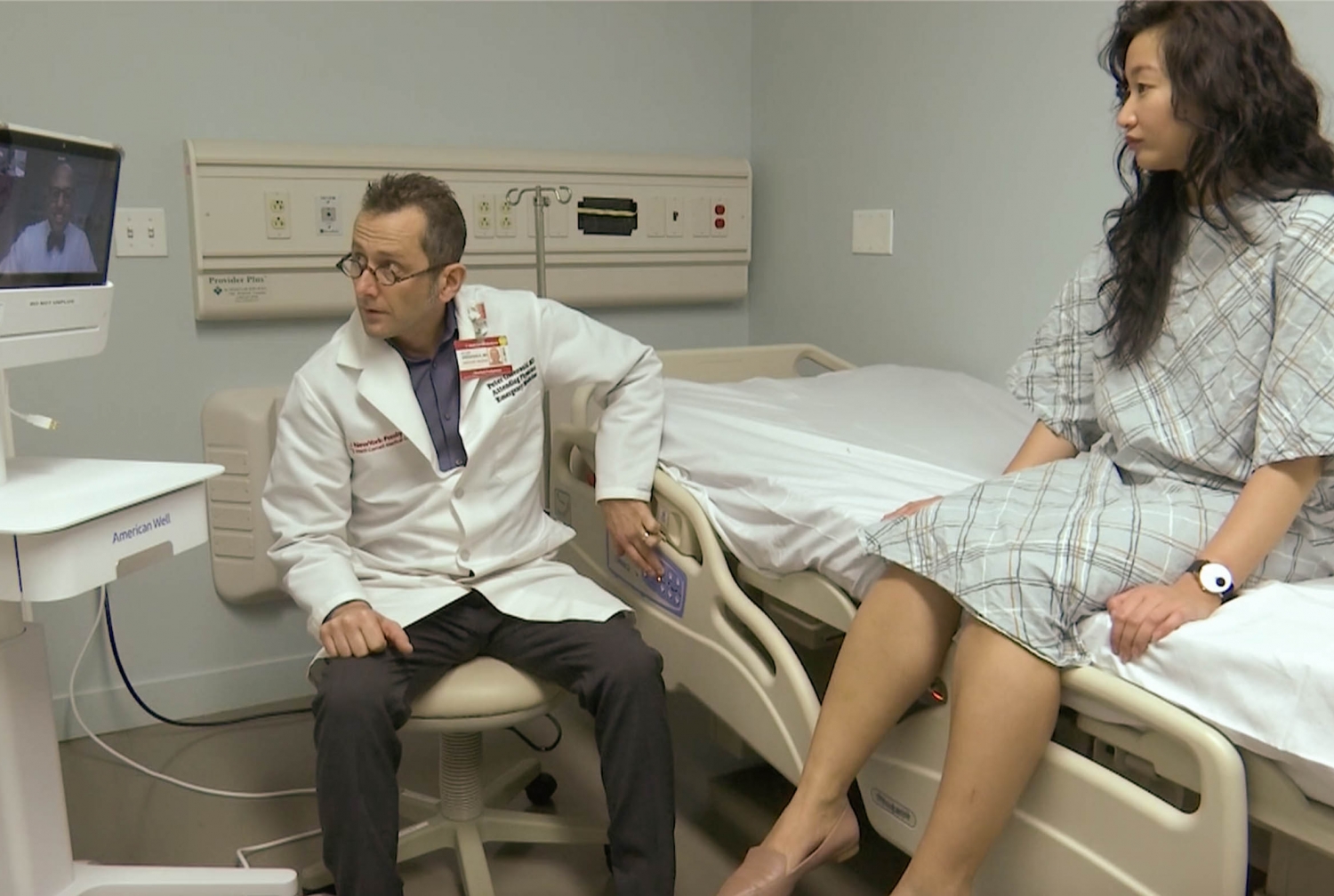The doctor will see you now – virtually.
As hospitals and emergency departments urge more patients to stay home to avoid exposing themselves and others to COVID-19 and to reduce stress on the healthcare system, patient care has increasingly moved to web-based video and audio technology called telemedicine. The volume of virtual emergency medicine and ambulatory care visits, using NewYork-Presbyterian’s telemedicine service NYP OnDemand, has increased from about 20-40 patients per day in February 2020 to over 300 per day in March, and numbers continue to rise. Similarly, primary care appointments using Weill Cornell Medicine’s Video Visits have gone up since the start of the COVID-19 crisis, with healthcare practitioners now fielding 700 virtual appointments per day and counting.
Weill Cornell Medicine has been a leader in telemedicine training since it began working in the emerging discipline four years ago. Recognizing from the outset the importance of teaching virtual care skills and techniques to those practicing medicine, in addition to medical students, the Department of Emergency Medicine’s Center for Virtual Care (CVC) had successfully trained hundreds of its healthcare practitioners prior to the current health crisis. Since then, the CVC has been at the forefront of this important initiative and trained more than 100 additional practitioners in a short period of time as it continues to broaden access to its program. Today it is preparing faculty, residents, physician assistants and care managers – and soon nurses across the institution, its partner, NewYork-Presbyterian, peer Columbia University Irving Medical Center, and external institutions for the expected influx of online patient visits.

Dr. Rahul Sharma
“This pandemic has highlighted the importance of broad, standardized telemedicine training of both our future and current providers,” said Dr. Rahul Sharma, professor and chairman of the Department of Emergency Medicine and executive director of the Center for Virtual Care at Weill Cornell Medicine, and emergency physician-in-chief at NewYork-Presbyterian/Weill Cornell Medical Center. “We want healthcare providers to be adequately prepared to give high-quality visits to our patients in this time of need and beyond.”
With health officials urging the practice of social distancing and discouraging in-person medical visits, both patients and providers nationwide have had to adapt. Recognizing a need to expand the reach of its telemedicine program, the CVC has created remote learning modules, moving its training online to get medical professionals trained as quickly as possible, ensuring that they are prepared to provide high quality care – as well as reassurance – for their patients.
“I believe we have put a lot of people’s minds at ease,” Dr. Sharma said. “Without this platform, people would be stuck in their homes and wouldn’t know who to talk to about their medical concerns. Now they can pick up their smartphone and reach a doctor. The majority of the visits we’ve had to the emergency room are the worried well—people are anxious and scared – but this provides an opportunity to get that healthcare advice and peace of mind without making a trip to the ER.”
Launched in early 2020 to build on Weill Cornell Medicine’s existing telemedicine education program, which focused on medical students, the Center for Virtual Care now trains both students and healthcare practitioners in the fundamentals of virtual care. Through innovative teaching methods and classroom instruction, the training includes “web-side” manner, remote patient examination skills, and how to make treatment-related decisions while using virtual media. Using simulations with standardized patients, trainees learn how to how to best present themselves on camera and to effectively interact with patients online.
“Telemedicine has ended up being the perfect tool to deploy during this health crisis, which requires us to limit physical contact,” said Dr. Neel Naik, the simulation education director for the Department of Emergency Medicine and an assistant professor of clinical emergency medicine at Weill Cornell Medicine, and an emergency medicine physician at NewYork-Presbyterian/Weill Cornell Medical Center. “A stay-at-home order doesn’t mean that patient care stops. There is still a lot of regular, ongoing medical care that needs to be provided, it just can’t be conducted in the traditional way of showing up to your doctor’s office.”
While the Center for Virtual Care operates under the auspices of Weill Cornell Medicine’s Department of Emergency Medicine, its training now spans a variety of departments, including pediatrics, neurology, dermatology and psychiatry, in addition to primary care and emergency medicine. The CVC steering committee consists of several clinical and education leaders across WCM, Cornell Tech and NewYork-Presbyterian, spanning many departments. With a mission to improve delivery of virtual care across the health system, the CVC also offers training to physicians who provide care across the NewYork-Presbyterian enterprise and collaborates with external institutions who have engaged with the CVC to train its healthcare providers.
“This crisis is something that telemedicine is perfectly designed to address,” said Dr. Peter Greenwald, director of telemedicine in the Department of Emergency Medicine and an assistant professor of clinical emergency medicine at Weill Cornell Medicine. However, while the urgency to broaden telemedicine’s use is higher because of the pandemic, providing quality medical care remains the top priority, he noted.
“It’s important in this time that we meet the current healthcare needs through whatever means necessary, which includes telemedicine,” said Dr. Greenwald, who is also an emergency medicine physician at NewYork-Presbyterian/Weill Cornell Medical Center and director of emergency medicine telehealth services and of emergency medicine telehealth quality assurance at NewYork-Presbyterian. “But it’s also vital that while doing that we maintain a certain level of care, ensuring that the manner in which we’re delivering that care is in the best interest of our patients.”

